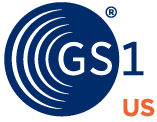Solution
Wegmans Food Markets recognizes the importance of standards to simplify data collection and sharing for suppliers. The company is implementing GDST (Global Dialogue on Seafood Traceability) standards, which are based on GS1 Standards, in its seafood supply chains. This approach provides a common language for seafood suppliers to share data, even between different traceability systems.
Wegmans' adoption of GDST and GS1 Standards benefits its own suppliers and other seafood buyers. GDST data standards allow everyone throughout the seafood supply chain to share data seamlessly using their preferred GDST-compliant traceability system, saving time on data cleansing, preventing data loss, and eliminating the need to manage multiple systems and data sets. Wegmans and many of its suppliers have chosen to use Wholechain, a GS1 US Solution Partner and GDST-compliant traceability system. By leading in the use of standards, the retailer has the potential to revolutionize data sharing and support food safety and responsible sourcing initiatives across the global seafood industry.











